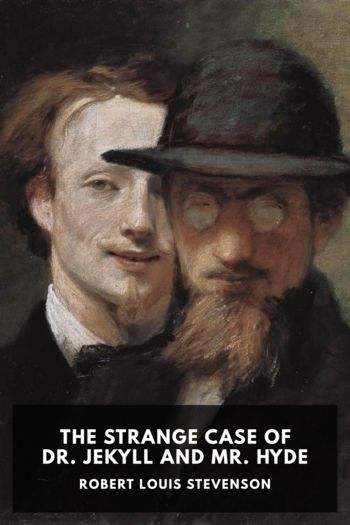Kidnapped - Robert Louis Stevenson (the gingerbread man read aloud TXT) 📗

- Author: Robert Louis Stevenson
Book online «Kidnapped - Robert Louis Stevenson (the gingerbread man read aloud TXT) 📗». Author Robert Louis Stevenson
“Na, na; na, na,” he said, very earnestly. “I like you fine; we’ll agree fine yet; and for the honour of the house I couldnae let you leave the way ye came. Bide here quiet, there’s a good lad; just you bide here quiet a bittie, and ye’ll find that we agree.”
“Well, sir,” said I, after I had thought the matter out in silence, “I’ll stay awhile. It’s more just I should be helped by my own blood than strangers; and if we don’t agree, I’ll do my best it shall be through no fault of mine.”
IV I Run a Great Danger in the House of ShawsFor a day that was begun so ill, the day passed fairly well. We had the porridge cold again at noon, and hot porridge at night; porridge and small beer was my uncle’s diet. He spoke but little, and that in the same way as before, shooting a question at me after a long silence; and when I sought to lead him to talk about my future, slipped out of it again. In a room next door to the kitchen, where he suffered me to go, I found a great number of books, both Latin and English, in which I took great pleasure all the afternoon. Indeed, the time passed so lightly in this good company, that I began to be almost reconciled to my residence at Shaws; and nothing but the sight of my uncle, and his eyes playing hide and seek with mine, revived the force of my distrust.
One thing I discovered, which put me in some doubt. This was an entry on the flyleaf of a chap-book (one of Patrick Walker’s) plainly written by my father’s hand and thus conceived: “To my brother Ebenezer on his fifth birthday.” Now, what puzzled me was this: That, as my father was of course the younger brother, he must either have made some strange error, or he must have written, before he was yet five, an excellent, clear manly hand of writing.
I tried to get this out of my head; but though I took down many interesting authors, old and new, history, poetry, and storybook, this notion of my father’s hand of writing stuck to me; and when at length I went back into the kitchen, and sat down once more to porridge and small beer, the first thing I said to Uncle Ebenezer was to ask him if my father had not been very quick at his book.
“Alexander? No him!” was the reply. “I was far quicker mysel’; I was a clever chappie when I was young. Why, I could read as soon as he could.”
This puzzled me yet more; and a thought coming into my head, I asked if he and my father had been twins.
He jumped upon his stool, and the horn spoon fell out of his hand upon the floor. “What gars ye ask that?” he said, and he caught me by the breast of the jacket, and looked this time straight into my eyes: his own were little and light, and bright like a bird’s, blinking and winking strangely.
“What do you mean?” I asked, very calmly, for I was far stronger than he, and not easily frightened. “Take your hand from my jacket. This is no way to behave.”
My uncle seemed to make a great effort upon himself. “Dod man, David,” he said, “ye should-nae speak to me about your father. That’s where the mistake is.” He sat awhile and shook, blinking in his plate: “He was all the brother that ever I had,” he added, but with no heart in his voice; and then he caught up his spoon and fell to supper again, but still shaking.
Now this last passage, this laying of hands upon my person and sudden profession of love for my dead father, went so clean beyond my comprehension that it put me into both fear and hope. On the one hand, I began to think my uncle was perhaps insane and might be dangerous; on the other, there came up into my mind (quite unbidden by me and even discouraged) a story like some ballad I had heard folk singing, of a poor lad that was a rightful heir and a wicked kinsman that tried to keep him from his own. For why should my uncle play a part with a relative that came, almost a beggar, to his door, unless in his heart he had some cause to fear him?
With this notion, all unacknowledged, but nevertheless getting firmly settled in my head, I now began to imitate his covert looks; so that we sat at table like a cat and a mouse, each stealthily observing the other. Not another word had he to say to me, black or white, but was busy turning something secretly over in his mind; and the longer we sat and the more I looked at him, the more certain I became that the something was unfriendly to myself.
When he had cleared the platter, he got out a single pipeful of tobacco, just as in the morning, turned round a stool into the chimney corner, and sat awhile smoking, with his back to me.
“Davie,” he said, at length, “I’ve been thinking;” then he paused, and said it again. “There’s a wee bit siller that I half promised ye before ye were born,” he continued; “promised it to your father. O, naething legal, ye understand; just gentlemen daffing at their wine. Well, I keepit that bit money separate—it was a great expense, but a promise is a promise—and it has grown





Comments (0)